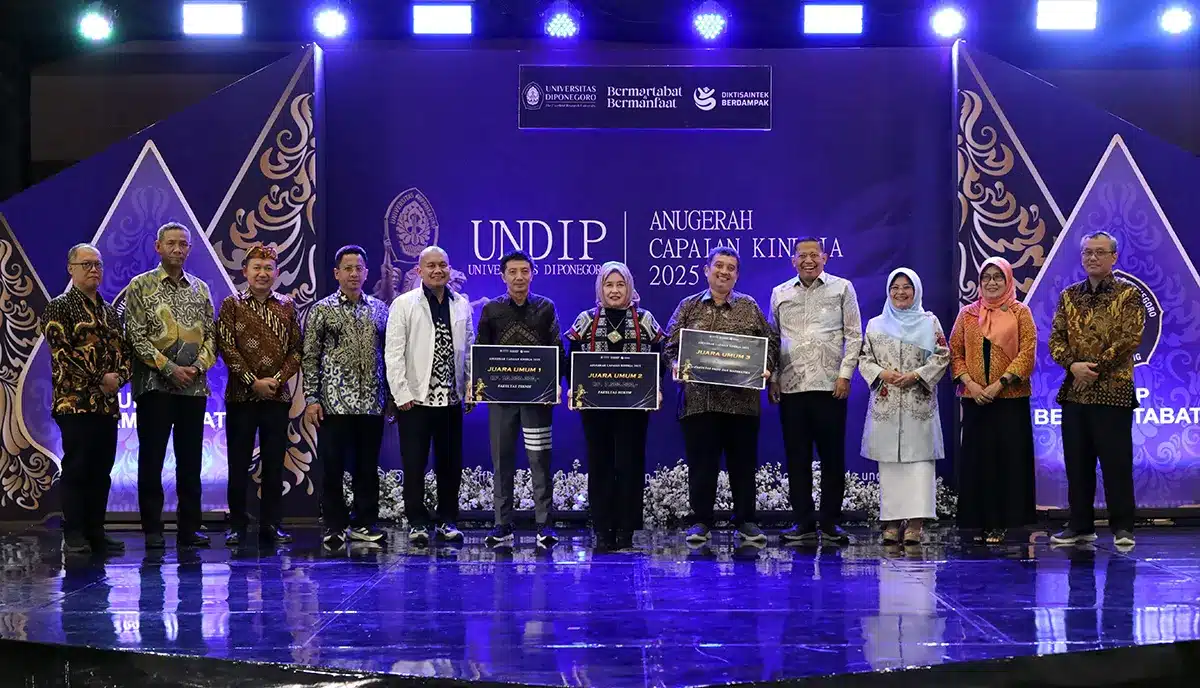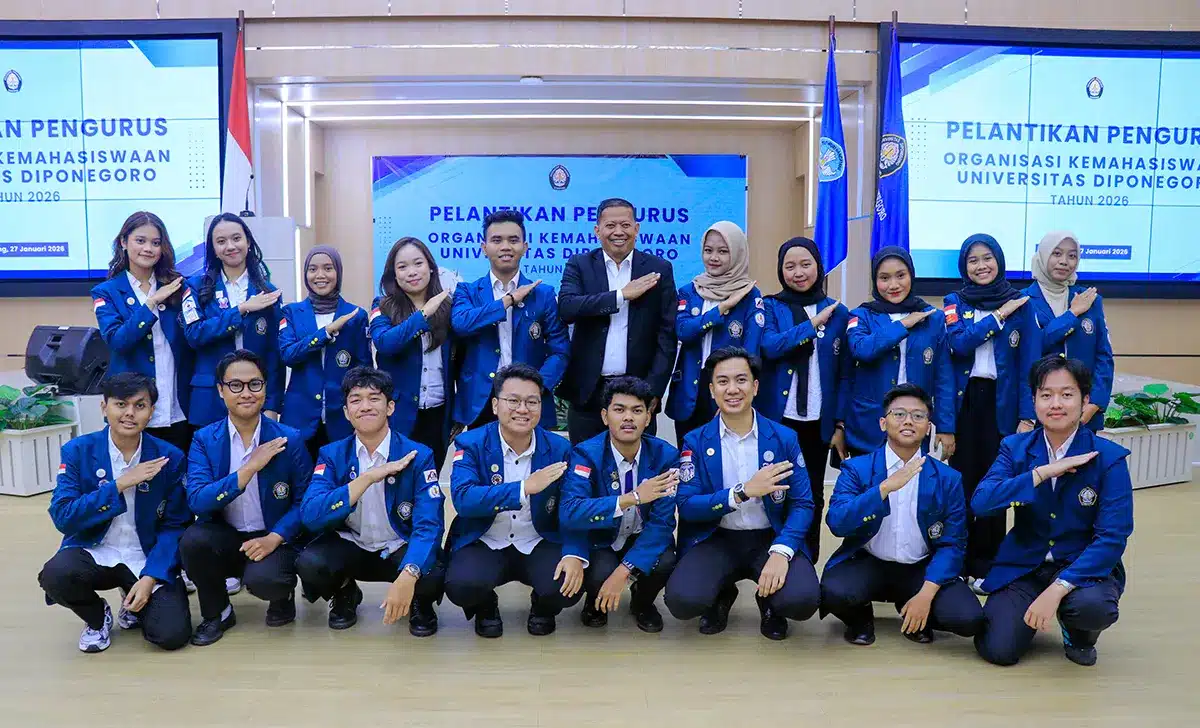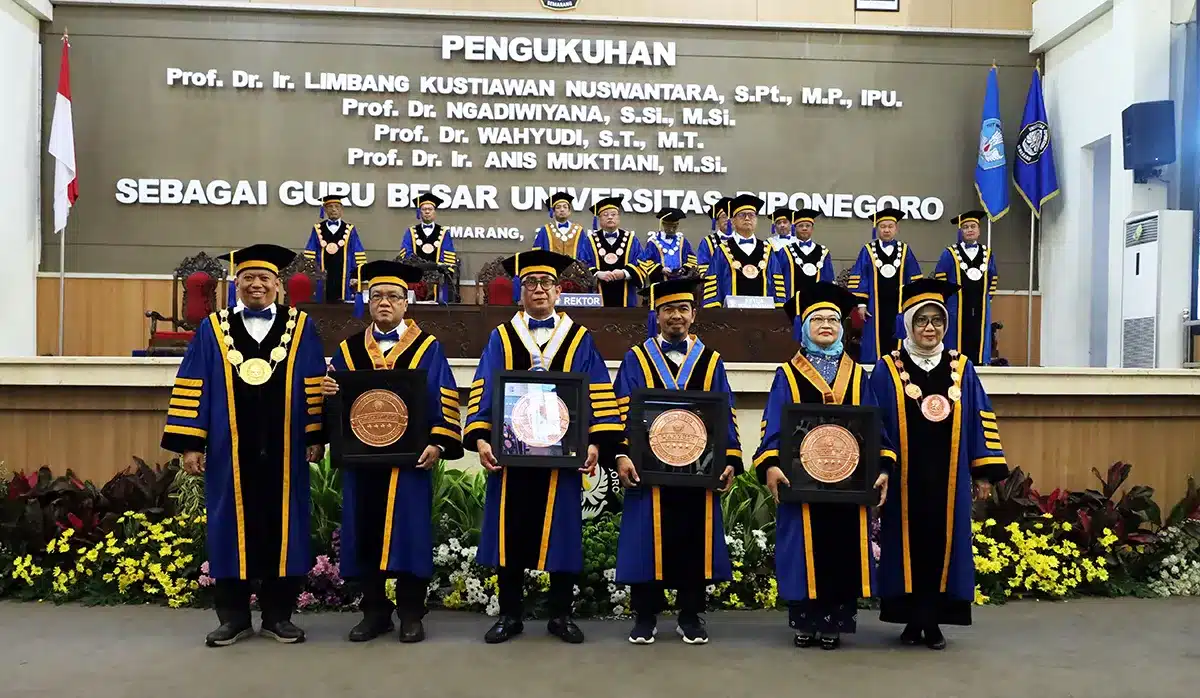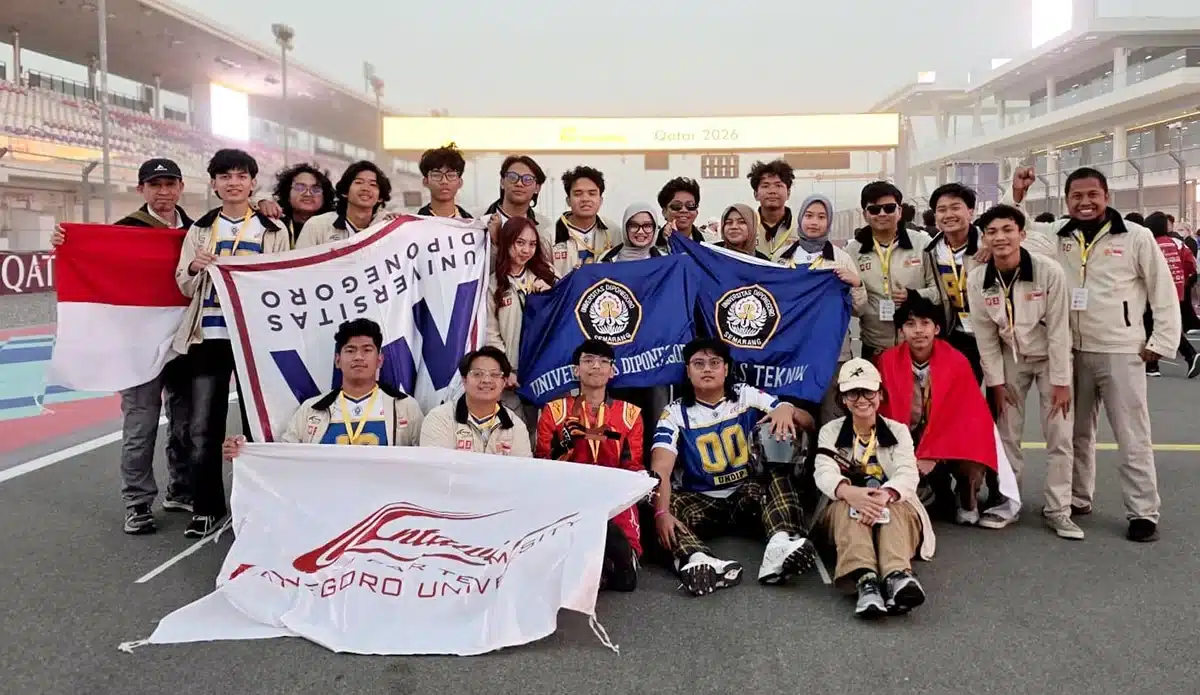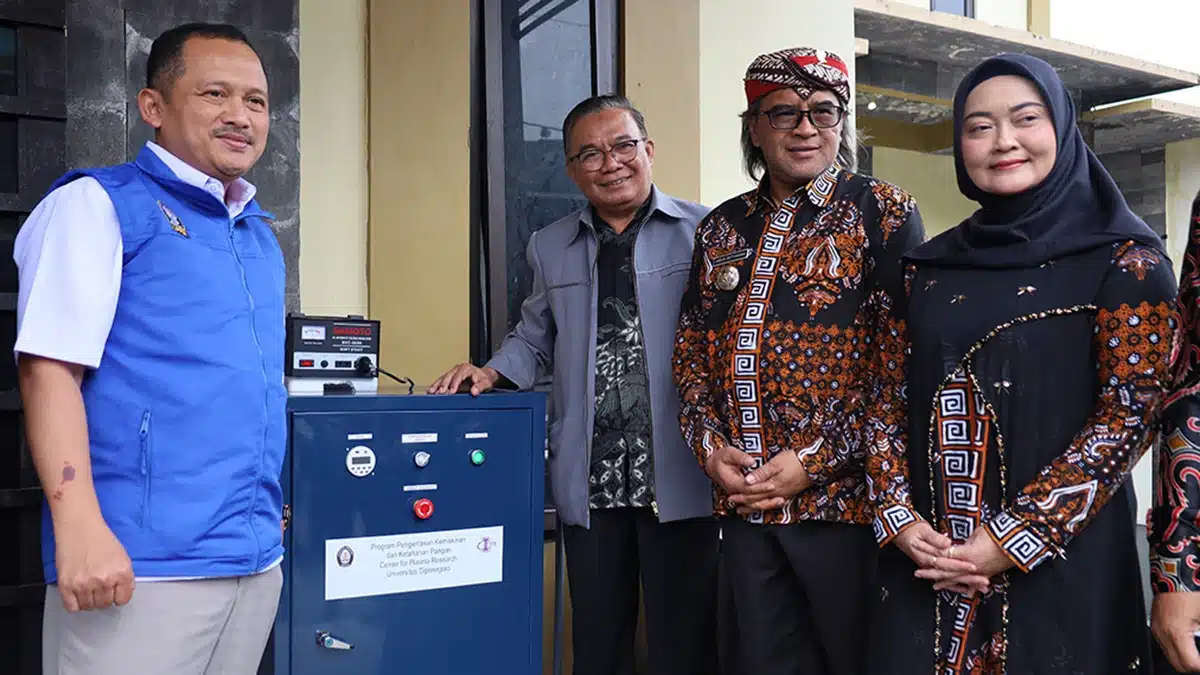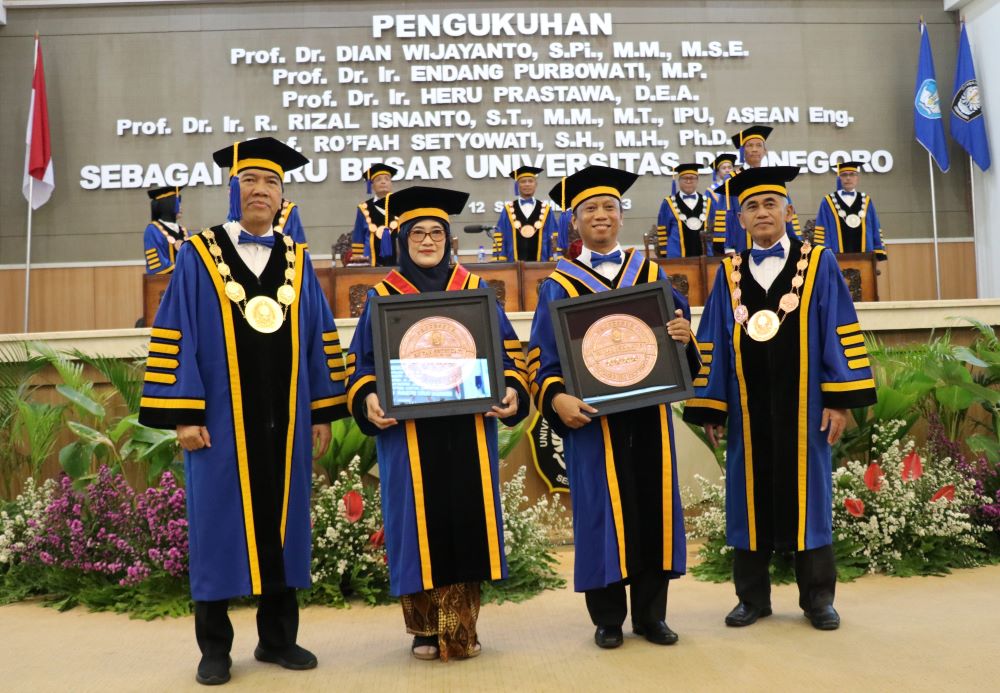Diponegoro University inaugurated two professors at the afternoon session of the inauguration ceremony on Tuesday (12/9) at the Prof. Soedarto, S.H. Building, Undip Tembalang. The inaugurated professors were Prof. Dr. Ir. R. Rizal Isnanto, S.T., M.M., M.T., IPU, ASEAN Eng. (Faculty of Engineering) and Prof. Ro’fah Setyowati, S.H., M.H., Ph.D. (Faculty of Law).
In his scientific work presentation entitled “Image Processing and Pattern Recognition in Biometric Systems for Identity Management, ” Prof. Rizal discussed the benefits of biometric technology, which helps increase the security of precise individual identification.
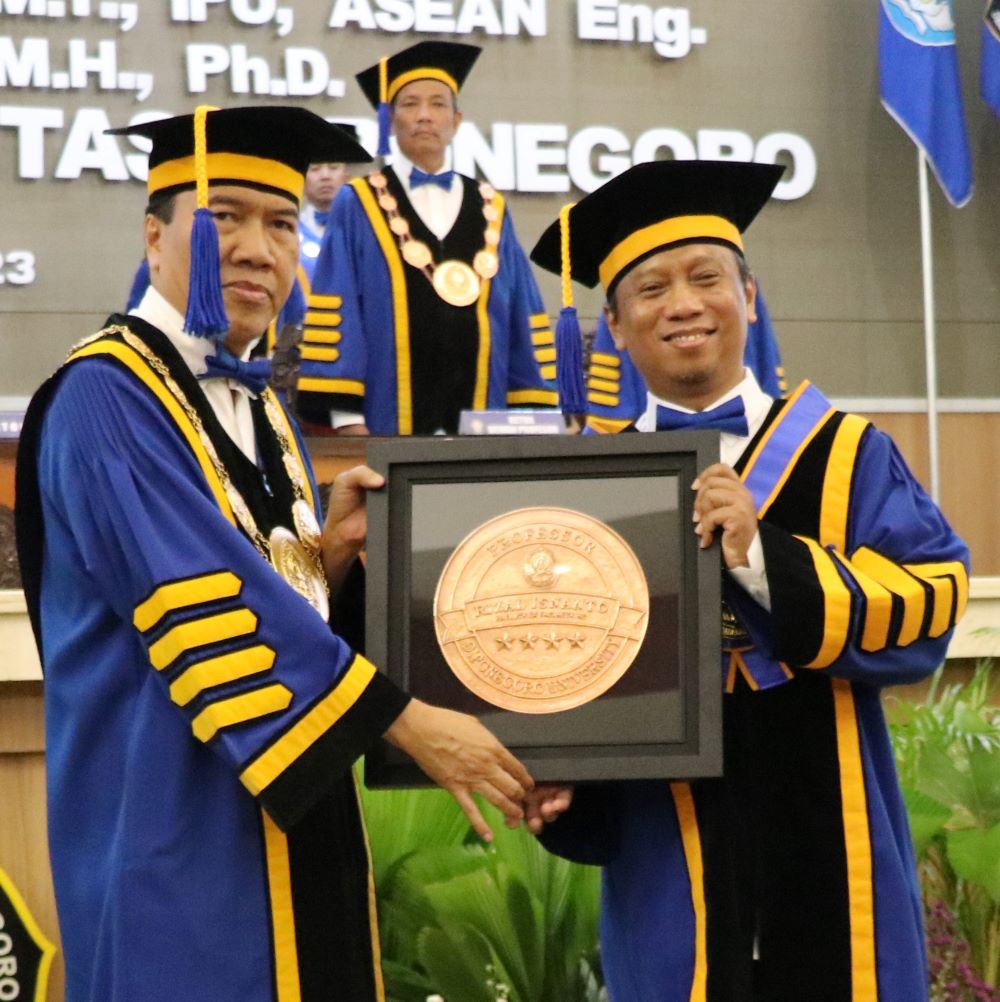 “The introduction of biometrics is still being carried out to find the best system, looking at accuracy, availability, speed, ease of access, and so on. By utilizing a biometric system, it is possible to apply one individual to one identifier or single identity so that a person no longer needs to carry various identities for himself. “Further studies are needed to combine Artificial Intelligence (AI) with Deep Learning methods with large databases for image processing and biometric image pattern recognition,” he said.
“The introduction of biometrics is still being carried out to find the best system, looking at accuracy, availability, speed, ease of access, and so on. By utilizing a biometric system, it is possible to apply one individual to one identifier or single identity so that a person no longer needs to carry various identities for himself. “Further studies are needed to combine Artificial Intelligence (AI) with Deep Learning methods with large databases for image processing and biometric image pattern recognition,” he said.
According to Prof. Rizal, of the five biometric iris characteristics (finger scales, palm, iris, retina, and face), the highest recognition occurred in the recognition of the palm and iris. The development of a new science, Identity Management, in the future, biometrics will become the primary support for this field.
Meanwhile, Prof. Ro’fah, in her inauguration speech entitled “Spiritual Rights of Halal Tourism Consumers in the Frame of Sharia Governance,” discussed identifying consumers’ spiritual rights in tourism-related legislation and finding elements that form an appropriate frame for Sharia governance. This study found that the sharia governance frame in the halal tourism industry still needs to improve.
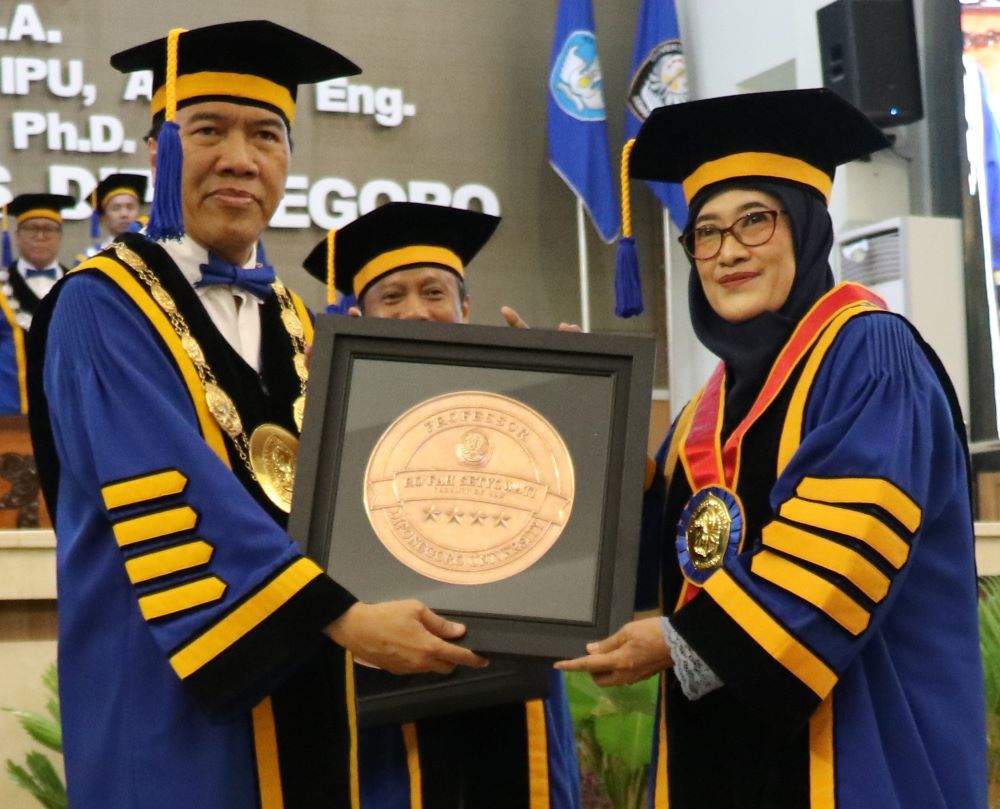 The improvement of Sharia governance can be seen from several elements, namely special legislation, special supporting regulations, general aspect authority institutions, Special aspect authority institutions (Sharia), related legal instruments, supervision of internal Sharia aspects, and supervision of external Sharia aspects. These elements become the main frame for sharia governance. The weakness of the supporting aspects of Sharia governance shows that serious efforts are needed to develop the halal tourism industry.
The improvement of Sharia governance can be seen from several elements, namely special legislation, special supporting regulations, general aspect authority institutions, Special aspect authority institutions (Sharia), related legal instruments, supervision of internal Sharia aspects, and supervision of external Sharia aspects. These elements become the main frame for sharia governance. The weakness of the supporting aspects of Sharia governance shows that serious efforts are needed to develop the halal tourism industry.
“To realize this framework, policies and programs are necessary internally and at each related institution and integrated cooperation between related institutions. The institutions related to protecting consumers’ spiritual rights within the framework of Sharia governance include Kemenparkeraf, BPJPH – Ministry of Religion, MUI, KNEKS-KDEKS, Regional Government, and BPKN,” he concluded. (LW/Richal – Public Relations)


